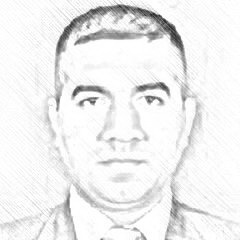What is Gerasimov Doctrine and how has it affected and is still shaping Russian Military thinking? What are the geopolitical, geographic and geostrategic ramifications of Gerasimov Doctrine? What is going to be the future of this doctrine while keeping in view the rapidly transforming world order? It is conceivable that states formulate policies flanked by strategies and doctrines to achieve objectives in this anarchic world. Gerasimov Doctrine can be interpreted as such an endeavour to enforce Russia’s relative position in the world.
The Russian Chief of the General Staff, Valery Gerasimov shared his reflections on the evolving nature of war and warfare in one of his articles in February 2013, titled as ‘The Value of Science is insight.’ The article drew attention to the lessons learned from the Arab Spring and the changing world order, where militaries played a vital role in securing the objectives of the state. Geopolitics has an important role to play in Russian strategic culture, and Gerasimov’s analysis on the importance of territory and taking control of it in adverse and hostile conditions reflect this very notion. It is interesting that when Gerasimov talked about the Arab Spring, he referred to the use of information and the control of the spread of information. Gerasimov also highlighted the importance of mercenary military companies which were specifically used in Libya in close coordination with regular military forces. It is quite interesting that apart from this remarkable critique, he ironically commented on the US Military Special Forces while outlining their importance and future role in covert operations during conflicts.
The term ‘Gerasimov Doctrine’ was ostensibly coined by Mark Galeotti in one of his blogs back in 2014, in which he outlined Russia’s new non-linear war. Galeotti’s analysis was primarily based upon Gerasimov’s article; however, on March 5, 2018, Galeotti wrote in his Foreign Policy article, “I am sorry for creating Gerasimov Doctrine”, and went on to deny the existence of any such doctrine in Russian.
Apart from Galeotti’s arguments, the Annexation of Crimea in 2014, when Putin took a former territory of the Soviet Union exhibited attributes of modern war, as they had been outlined by Gerasimov — people named it the ‘Hybrid War’
Apart from Galeotti’s arguments, the Annexation of Crimea in 2014, when Putin took a former territory of the Soviet Union exhibited attributes of modern war, as they had been outlined by Gerasimov — people named it the ‘Hybrid War’. Russia employed cyber and electronic warfare to jam Ukrainian information and communications while paralysing its command and control and decision-making echelons. Russia displayed the use of unconventional means of warfare by deploying commandos — which were referred by the Western media as ‘little green soldiers’. Russia also employed space platforms using its satellites for enhancing communications among its forces. The employment of various platforms and the combination of a number of warfare strategies, made analysts declare Annexation of Crimea as a perfect example of a ‘hybrid war’ in the contemporary era. The Hybrid War employs warfare strategies along with weapons which are predominantly asymmetric, unconventional or perhaps sub-conventional, and irregular. Analysts place hybrid war and its associated warfare strategies to be in the domain of the fifth generation of warfare (5 GW).
Gerasimov’s assertion on the importance of airborne forces and their use in Afghanistan is entirely amazing. Since Russia deployed their ‘little green soldiers’ mostly from air platforms in Crimea which effectively maintained a presence on the ground and neutralised or probably eliminated possible resistance. From purely a military perspective, the insertion of Special Forces in the vicinity of strategic locations to carry out a number of operations has been a very effective tactic in paralysing the enemy. However, this tactical maneuver was pioneered by the German General Kurt Student, who created Fallschirmjäger or paratroopers just before the start of the Second World War and used them effectively against in 1940, and 1941.
Those who deny or refute the presence of Gerasimov Doctrine including Mark Galeotti are perhaps ignoring the presence of such a political military instrument. It is a fact that Gerasimov’s assertions attracted a lot of literature, especially the Western academics and literature. For instance, it can be seen that US Army’s research journal Military Review in its May-June 2016 issue, acknowledged General Valery Gerasimov as a ‘seminal military theorist and writer’. Military thinkers strengthen political leadership through their innovative yet dangerous ideas which in turn assist the latter in altering the pages of history. It is obvious that states tend to increase and enhance their share in international politics. Putin under the doctrinal guidance of Primakov (late) and Gerasimov — is on his way to restore the lost prestige, power and glory of Russia.
The writer can be reached at mmab11@gmail.com
Published in Daily Times, September 9th 2018.
